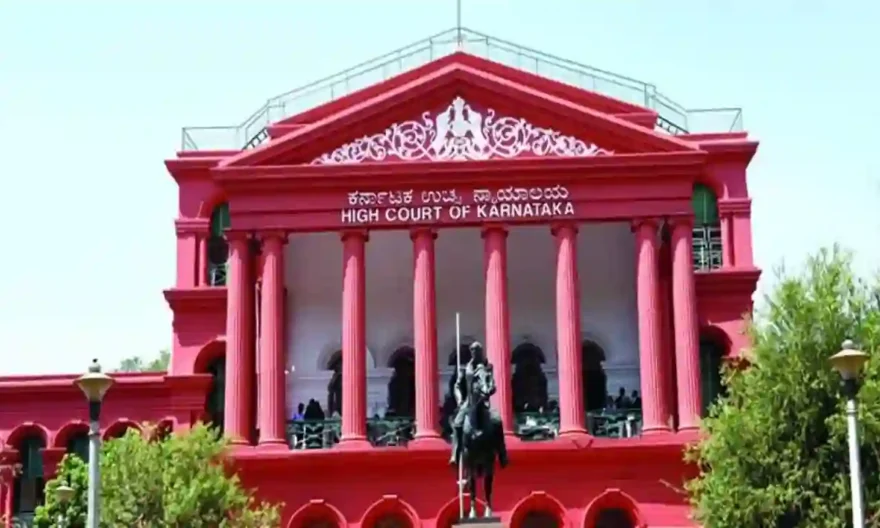
The Karnataka High Court on Monday expressed grief over the Karnataka Industrial Areas Development Board’s (KIADB) actions & it’s officials who failed to pay compensation for a time period of 15 years to the landowners.
While partly allowing the petition filed by MV Guruprasad, Justice Krishna S Dixit stating “The government cannot act as a robber of citizen’s lands.”
The court further stated that “Taking away private lands for the purported public purpose sans compensation militates against the spirit of constitutional guarantee enacted u/a 300A, the fundamental right to property no longer being on the statute book, notwithstanding. State & its instrumentalities are constitutionally expected to conduct themselves with fairness & reasonableness in all their actions.”
The petitioners therefore approached the court against the access of land dated on 09.01.2007 following the Final Notification dated on 17.05.2007 that was issued under Karnataka Industrial Areas Development Act, 1966 provisions.
The state asserted that “After the land owners notified the change of khatha pursuant to subject sale deeds, the Government had issued a Corrigendum Notification on 05.06.2014 mentioning their names and because of the protocol process, there is some delay and now the payment of compensation will be made.”
Therefore, the bench noted on the Preliminary notification that the names of the petitioners aren’t figured as Khatedars in Revenue Records and therefore the KIADB justified while notifying the acquisition in vendor’s name, who were the Khatedars.
It further stated that the representations of the petitioners dated on 09.01.2013 requested the KIADB for paying the compensation and taking their lands and also sent reminder dated on 01.07.2014 and 03.07.2014.
Moreover, “the Government issued a Corrigendum Notification dated 05.06.2014 mentioning their names and thereby entitling them to payment of compensation. However, compensation has not been paid even to this day. There is no plausible explanation as to why the payment of compensation is withheld for decade and a half. It hardly needs to be stated that payment of compensation is essential when private property is acquired for public purpose.”
Noting that the petitioner’s property has vested in the State vide Final Notification dated 17.05.2007, the bench stated that, “KIADB ought to have woken up and arranged for payment of the payment of compensation. However, strangely it has filed its Statement of Objections seeking dismissal of the petition contending that they have already developed the land and allotted the same to several entrepreneurs.”
The entire Statement of Objections, neither the State nor the KIADB has stated anything about the compensation, the bench said such a conduct reinforces the “shackles of a feudalistic attitude, from which the transformative character of our constitution seeks to liberate.”
The court further stated that “Their action in not paying the compensation is not only grossly violative of property rights constitutionally guaranteed under Article 300A but gnaws at overarching objectives of a Welfare State ordained under the Constitution.”
Observing that this court can’t deny justice which is eminently due to the aggrieved citizens by quoting some constitutional theories, the bench therefore stated that “The petitioners be paid at least 50% of the compensation to be computed under provisions of the 2013 Act, (Right to Fair Compensation and Transparency in Land Acquisition, Rehabilitation and Resettlement Act), along with solatium, interest & such other things.”
It clarified that in special circumstances of the case and because of the stay of a Coordinate Bench decision in a case wherein the court has directed payment of compensation under the 2013 Act, “The provisions of the 2013 Act are taken only for the purpose of determining/re-fixing the compensation amount on a normative basis till after & subject to decision in the Writ Appeal.”
It added: “Writ Courts being the custodians of Constitutional Rights of the citizens, have to individualise justice taking into account the facts & circumstances of the case at hand.”




